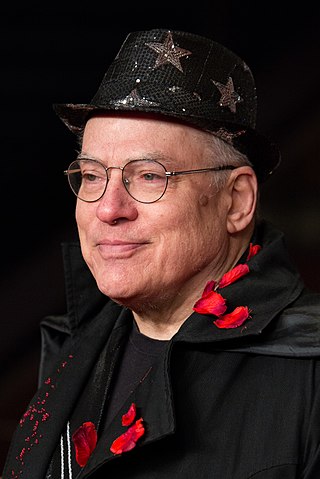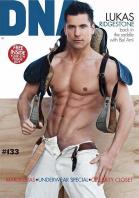Related Research Articles

Queer is an umbrella term for people who are not heterosexual or are not cisgender. Originally meaning 'strange' or 'peculiar', queer came to be used pejoratively against LGBT people in the late 19th century. Beginning in the late 1980s, queer activists, such as the members of Queer Nation, began to reclaim the word as a deliberately provocative and politically radical alternative to the more assimilationist branches of the LGBT community.

Queer Eye is an American reality television series that premiered on the Bravo network in July 2003, initially broadcast as Queer Eye for the Straight Guy. The series was created by executive producers David Collins and Michael Williams along with David Metzler through their company, Scout Productions. Each episode features a team of gay professionals in the fields of fashion, personal grooming, interior design, entertaining, and culture collectively known as the "Fab Five" performing a makeover : revamping wardrobe, redecorating, and offering lifestyle advice.
"New queer cinema" is a term first coined by the academic B. Ruby Rich in Sight & Sound magazine in 1992 to define and describe a movement in queer-themed independent filmmaking in the early 1990s.

Lesbian erotica deals with depictions in the visual arts of lesbianism, which is the expression of female-on-female sexuality. Lesbianism has been a theme in erotic art since at least the time of ancient Rome, and many regard depictions of lesbianism to be erotic.

In comics, LGBT themes are a relatively new concept, as lesbian, gay, bisexual, and transgender (LGBT) themes and characters were historically omitted from the content of comic books and their comic strip predecessors due to anti-gay censorship. LGBT existence was included only via innuendo, subtext and inference. However the practice of hiding LGBT characters in the early part of the twentieth century evolved into open inclusion in the late twentieth and early twenty-first centuries, and comics explored the challenges of coming-out, societal discrimination, and personal and romantic relationships between gay characters.
Rick Castro is an American photographer, motion picture director, stylist, curator and writer whose work focuses on BDSM, fetish and desire

Holger Bernhard Bruno Mischwitzky, known professionally as Rosa von Praunheim, is a German film director, author, painter and one of the most famous gay rights activists in the German-speaking world. In over 50 years, von Praunheim has made more than 150 films. His works influenced the development of LGBTQ+ rights movements worldwide.

DNA is an Australian monthly magazine targeted at gay men. The magazine was founded by Andrew Creagh in 2000, who also acts as the managing editor of the publication. The magazine features topical news and stories on celebrities, entertainment, lifestyle, fashion, pop culture reviews, articles on fitness, grooming and health tips along with photography features.
Gay media refers to media that predominantly targets a gay, lesbian or LGBTQ+ allied audience. The primary target market for gay media may also more broadly be considered to include members of an LGBTQ+ community. Secondary targets are LGBTQ+ allies, and in some instances those who oppose gay rights may be targeted as a form of activism to change their minds. There are many types of gay media, and the type is determined by the purpose of the media presented. Gay or queer media can also be defined as web sites, films, magazines and other cultural products that were created by queer individuals, or groups that are typically out, meaning that they are public or open about their identity. Gay creators do not always include gay themes or issues in their productions but there is usually at least subtle references to queerness or acceptance in these media.
Although same-sex sexual activity was illegal in Canada up to 1969, gay and lesbian themes appear in Canadian literature throughout the 20th century. Canada is now regarded as one of the most advanced countries in legal recognition of lesbian, gay, bisexual, and transgender (LGBT) rights.

The LGBT community in Liverpool, England is one of the largest in the United Kingdom and has a recorded history since the 18th century. Many historic LGBT firsts and pioneering moments in the LGBT rights movement either took place in Liverpool or were achieved by citizens of the city.
Since the transition into the modern-day gay rights movement, homosexuality has appeared more frequently in American film and cinema.

The following outline offers an overview and guide to LGBT topics.
LGBT culture in Leeds, England, involves an active community of people who identify as lesbian, gay, bisexual, or transgender/transsexual. A BBC News Online article published in 2012 stated that, while Leeds City Council has not published statistics relating to the number of LGBT residents, the figure can be estimated at 10% of the overall population, which currently suggests a total of at least 77,000. The tenth year of the Leeds Pride march and celebration, held in 2016, was attended by over 40,000 people.
Straightwashing is portraying LGB or otherwise queer characters in fiction as heterosexual (straight), making LGB people appear heterosexual, or altering information about historical figures to make their representation comply with heteronormativity.
For many years, LGBT representation increased on animated series and animated films. In the 1990s, LGBT characters were depicted in animated series like South Park, The Ambiguously Gay Duo, and The Simpsons. In the early 2000s, LGBT representation increased in Western animation, culminating in GLAAD's "Where We Are in TV" report in 2005, even as representation in such animation was scattered and disparate. In the 2000s, series like Queer Duck, The Oblongs, The Venture Bros., Drawn Together, and Archer would air. It would not be until the advent of shows like Steven Universe, The Legend of Korra, and Adventure Time in the 2010s, that LGBT characters in animation would gain more of a prominent role, leading to shows such as She-Ra and the Princesses of Power in 2018 and Kipo and the Age of Wonderbeasts in 2020, along with other series in the 2020s. This page will show this progress by building off the lists of animated series which contain these characters and explain the History of LGBT characters in animation. It does not focus on LGBT characters in anime series or films, which is examined on the LGBT themes in anime and manga page.
On August 5, 1969, the Atlanta Police Department led a police raid on a screening of the film Lonesome Cowboys at a movie theater in Atlanta, Georgia, United States.

Fire Island is a 2022 American romantic comedy film directed by Andrew Ahn, and written by and starring Joel Kim Booster. The film co-stars Bowen Yang, Conrad Ricamora, James Scully, and Margaret Cho. Inspired by Jane Austen's Pride and Prejudice, the story follows a group of gay friends who go on vacation to Fire Island, only for things to become complicated by classism and romance.

He-Man, a fictional superhero from the sword and sorcery franchise Masters of the Universe created by Mattel, has often attracted queer interpretations and discussions over his status as a gay icon. His first appearance was in the 1982 comics included with his toy figures. The animated television series He-Man and the Masters of the Universe, which aired from 1983 to 1986, focused on the character and established traits that would remain consistent in future installments of the franchise.
This article features the history of the representation of lesbian, gay, bisexual, and transgender (LGBT) characters in animated productions under The Walt Disney Company, including films from the studios Walt Disney Animation Studios and Pixar, and programming from the Disney Branded Television channels as well as the streaming service Disney+. From 1983 onward, Disney struggled with LGBTQ representation in their animated series, and their content often included LGBT stereotypes or the content was censored in series such as Blazing Dragons. Some creators have also criticized Disney studio executives of cutting LGBTQ scenes from their shows in the past, or criticized that their shows were not seen as part of the "Disney brand", like The Owl House.
References
- 1 2 3 Bengry, Justin. "The Queer History of Films and Filming." Little Joe: A magazine about queers and cinema, mostly 2 (2011): 31–41.
- ↑ Baggs, Michael (3 June 2021). "Pride month: The LGBT history you probably didn't learn in school". BBC News. Retrieved 3 June 2021.